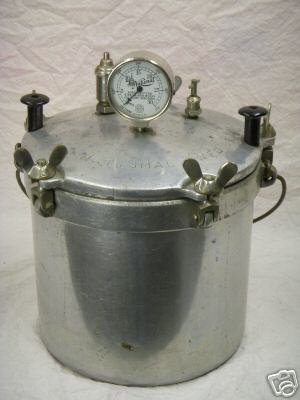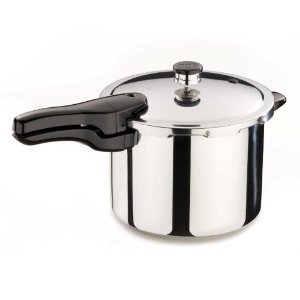You guys are in for a treat over the next week! I am taking a much needed vacation and – learning from my past mistakes – I’m even taking a break from the blog during this trip. I’ll be spending some quality time on the slopes in Utah, trying to remember how to snowboard between eating lots of good food and sipping on wine and beer. Sounds good, right?! Our dogs will be spending some quality time at home with their favorite pet/house sitter – well, at least Zurie’s favorite. Abbott is not always as nice to her as he should be.
While I’m gone, I have lined up 5 AWESOME blog friends to entertain you!! I’m not going to tell you just who yet, but trust me that you’ll want to stop by all week and find out. =)
I’m kicking off this vacation a little early with the first guest post today – from what of my favorite vegan bloggers – JL! If you don’t already read her blog, JL Goes Vegan, head over there (after reading this post, of course) and check out her site.
Without further ado, let’s dive into her post about Pressure Cookers – which I’m hoping will help convince my hubby that we need one of these for our kitchen.
*********************************
 Early on in my vegan days I read many blogs with recipes that required a pressure cooker. I passed over those recipes because I associated pressure cooking with canning and I’m not that kind of cook. Eventually I began to see that these bloggers used the pressure cooker to make beans, grains, vegetables, and soup. I was intrigued – but terrified! Growing up my mother would bring out the pressure cooker in the summer to can tomatoes. It was the old school type.
Early on in my vegan days I read many blogs with recipes that required a pressure cooker. I passed over those recipes because I associated pressure cooking with canning and I’m not that kind of cook. Eventually I began to see that these bloggers used the pressure cooker to make beans, grains, vegetables, and soup. I was intrigued – but terrified! Growing up my mother would bring out the pressure cooker in the summer to can tomatoes. It was the old school type.
SOURCE
She was always nervous and would shoo us out of the house. Canning days were nerve-wracking!
Finally, after reading Operation Pressure Cooker on Choosing Raw, I leaped out of my comfort zone – pushing aside childhood fears – and bought a pressure cooker, which is decidedly more modern.
I fell in love. Hard. A true game-changer, the pressure cooker as forever altered the way I prepare and food. Here are the Top 3 reasons I love my pressure cooker. 1. Eat beans and grains in minutes! I’m a beans, greens and grains vegan. And I’m a lazy vegan. That combination could lead to a lot of canned beans and minute-rice but the pressure cooker has saved me from that fate. This is just a sampling of recipes that I have cooked up fast:
How fast?
- Quinoa: 1 minute
- Bulgar: 5 minutes
- Pearled Barley: 18 minutes
- Brown Lentils: 8 minutes
- Black-Eyed Peas: 10 minutes
- Adzuki Beans: 14 – 20 minutes
- Navy Beans: 16 – 20 minutes
- Red Kidney Beans: 20 minutes
2. Save money!
- A 15 oz can of Eden Organic Black Beans = 1.5 cups of cooked beans. The cost of 1.5 cups cooked beans (canned) is approximately $2.06 USD. A 16 oz box of dry Eden Organic Black Beans = 2.25 cups of dry beans. 2.25 cups of dry beans will make 7.5 cups cooked beans. The cost of 1.5 cups cooked beans (dry) is approximately 64¢ USD. YOU SAVE $1.42 USD!
- A 32 oz. carton of Pacific Organic Vegetable Broth = 4 cups. The cost is approximately $4.29 USD. I make homemade vegetable broth, cooked up in 10 minutes in the pressure cooker, with vegetable that would have been tossed into the trash. The cost is minimal, pennies for whatever spices or seasoning I choose to use, so let’s call it FREE.
‘Nuff said.
3. Better nutrition!
Actually, I don’t know if that’s true. But here are some thoughts on the topic:
The pressure cooker can be an incredibly nutritious method of cooking. Because of its tight-sealing lid, nutrients are trapped inside the cooker within the liquid. This makes the liquid a source of nutrition that may have otherwise been lost with other cooking methods. Also, unlike other high-heat, quick-cooking techniques such as grilling, pressure cooking does not produce carcinogenic compounds. – Food & Nutrition Magazine
In the case of grains and legumes, although the vitamins and heat-sensitive vitamins and phytonutrients are vulnerable to deterioration, the net result of pressure-cooking is a positive nutritional gain—from the increased digestibility of the macronutrients (protein, fiber and starch) and the increased bioavailability of the essential minerals.- Eating Well Magazine
According to the Nestle professional newsletter, pressure cooking conserves 90-95% of nutrients versus steaming (75-90%) and boiling (40-65%) – Laura, HipPressureCooking.com
This is what I know: If I didn’t have a pressure cooker I would not be consuming such a wide variety of nutrients found in beans, legumes, and grains. Interested in learning more?
- Check out Great Vegetarian Cooking Under Pressure by Lorna Sass or The New Fast Food™: The Veggie Queen™ Pressure Cooks Whole Food Meals in Less than 30 Minutes by Jill Nussinow (full disclosure: I’m an affiliate sales-point for Jill).
- Watch me give my friend her first pressure cooker lesson on my VLOG post A Pressure & Rice Cooker Lesson (When the pressure cooker’s rockin’, don’t come a knockin’).
- Read more about my lazy vegan ways on my FAQ What’s up with the rice and pressure cooker obsession?
My thanks to Heather for humoring me and letting me go on and on about my love affair with the pressure cooker!

JL Fields blogs about her transition to a vegan diet and lifestyle at JL goes Vegan: Food & Fitness with a Side of Kale. Her original recipes have been featured on Foodbuzz, BlogHer and Meatless Monday. She is the editor of the community blog Stop Chasing Skinny: Find Happiness Beyond the Scale.







